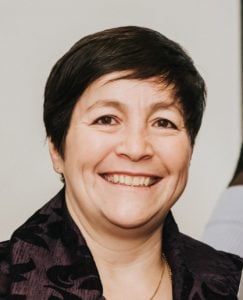Dr Desiree Yap is a specialist O&G with a passion for women’s health. She is a qualified specialist in both Australia and the United Kingdom and has a Master of Public Health and Tropical Medicine from James Cook University. On 26 January 2020, she was appointed Member of the Order of Australia for her ‘significant service to women’s health and to medicine.’

Desiree, how did you feel when you found out about your Award?
My initial feeling was one of surprise – then I felt equal parts honoured, humbled and validated. As per the rules, I didn’t know I had been nominated and I still don’t know who nominated me. The idea that there are people who thought my work was worthwhile for nomination and then to be judged worthy and valuable by the Committee is an incredible feeling.
You were awarded for ‘significant service to women’s health and to medicine’. Can you tell us more about your work?
‘Service to women’s health and to medicine’ – What is that about? Outside of my normal practise, I have spent a lot of my time advocating for women’s health and medical women’s professional development via organisations like the Victorian Medical Women’s Society, the Australian Federation of Medical Women and Women’s Health Victoria. I have been a voluntary board member and Chair for all of these organisations over the years. In addition, I have supported and mentored medical women, particularly young medical women, with their career and professional development.
I have also worked in rural regional and remote Australia. I was the first person to have part of a Master of Public Health accredited as part of my RANZCOG training and from there looked for ways to apply public health principles to women’s health including to clinical practise. I am not sure if any other O&G’s had a Master of Public Health in 1995 but I didn’t know anyone else from RANZCOG.
I don’t think mine has been a ‘traditional’ path to recognition. I am not a Professor, nor have I gained recognition through the traditional routes of the College or the AMA for example. I am thrilled this kind of ‘unconventional’ work has been found to be so valuable by both men and women.
What drew you to specialise in O&G?
As a medical student, my first delivery was a phenomenal experience. Participating in the labour management and watching the baby birth and take a breath felt like I was watching a miracle – it still feels like that. However, I was also politicised at one of my first lectures. The lecturer said: “You’re about to learn that most women have an IQ of two because they can’t remember the first day of their last menstrual period.”
I reflected – I didn’t think I had an IQ of two? I asked some of my female colleagues – they too couldn’t remember that date. The correlation just didn’t seem to be there as we had been selected as medical students despite not knowing this apparently critical detail. It was a transformative moment in my career. Obstetrics was a blast, but I was mortified that these attitudes and biases prevailed in medical education and medical science.
These were the days before ultrasound and endoscopy; molecular biology was in its infancy. It seemed that if you couldn’t find the reason for a woman’s gynaecological ailment, then it must be ‘in her head’. Given the gaps in our scientific knowledge then, this seemed an unsound conclusion. I thought women deserved better.
What would you like to achieve with your work?
I’d like to see women not being treated as a ‘special interest group’. They’re not special, they are 52% of the population. Understanding and acting on how gender impacts on all areas of medicine is important.
I’d like to see women participating equally in all aspects of life and this being considered normal and unremarkable. Particularly in leadership positions. The representation of women in power structures should reflect the proportions in our general society. It should be the same for ‘minority groups’ in our population as well. If women are not there, why are they not there? Are there structural barriers? Of course, we know there are.
‘Who is under-represented in your population and why’ is a basic question in Public Health. We then think about whether access is a problem. I don’t know why we can’t think like this about representation in leadership and then do something about it.
RANZCOG has a great opportunity to lead the way given its remit and high proportion of female members. I’d particularly like to see the out-dated concept of ‘feminisation of the workforce’ buried and medicine move on with the current concept of ‘normalisation of the workforce’. I’d like people to realise that both men and women benefit from thinking about things differently.
The progress in all these areas over my career has been immense but there is still plenty to do. Whilst I am optimistic that these issues are becoming increasingly visible I, and all the others seeking to progress similar work, still have work to do!
What advice would you give to young people starting out in O&G/women’s health?
Be interested in the wider concept of women’s health and be fascinated by the practise of medicine and the physiology of women in particular. Always challenge ideas about equality and diversity and advocate for progress. See the miracle in conception, pregnancy and birth (even at 3am!). Look to understand the detail of the anatomy and physiology as well as how gender and other social determinants impact on health and health research. If it’s something that interests you, go for it. I can’t think of something I’d rather do.


